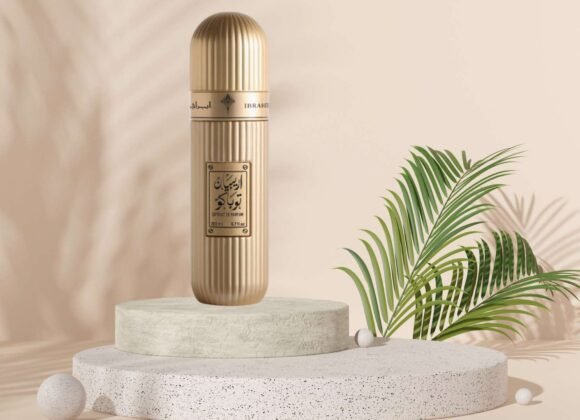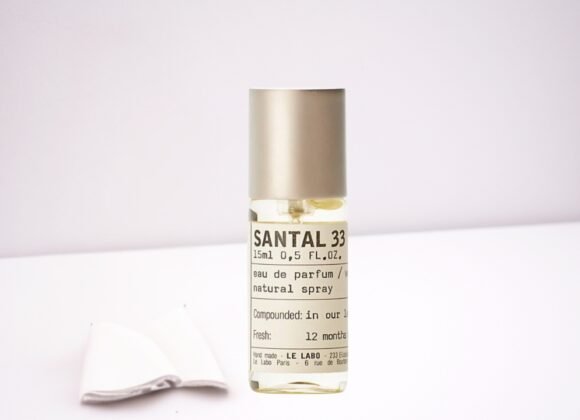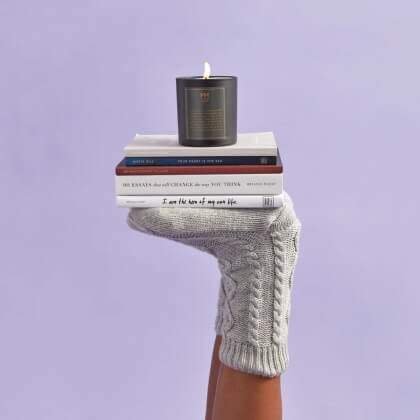Selecting the perfect perfume is more than just picking a scent you like. It’s about finding a fragrance that complements your unique body chemistry, enhancing your natural scent and leaving a lasting impression. The interaction between your skin and the perfume’s ingredients creates a personalized aroma that can vary from person to person.
Understanding your body chemistry and how it interacts with different fragrance notes is key to finding your signature scent. In this comprehensive guide, we’ll explore the factors that influence how a perfume smells on you and provide practical tips to help you choose the right perfume that not only smells great but also suits your individual body chemistry.
Perfume and Body Chemistry: The Basics
At its core, perfume is a complex mixture of aromatic compounds dissolved in a solvent, usually alcohol. When applied to the skin, these compounds interact with your body’s natural oils, pH levels, and even your diet, creating a unique scent profile. This is why the same perfume can smell different on various people. Your body chemistry is influenced by several factors:
- Skin type: Oily skin tends to hold fragrances longer, while dry skin may require more frequent reapplication. The natural oils in your skin can also alter the scent of the perfume.
- pH levels: The acidity or alkalinity of your skin can affect how a perfume develops over time. Some notes may become more pronounced or fade faster depending on your skin’s pH.
- Diet: What you eat can impact your body’s natural scent. Foods with strong aromas, like garlic or spices, can interact with perfume and alter its smell on your skin.
- Hormones: Hormonal changes due to menstruation, pregnancy, or medications can influence your body chemistry and, consequently, how a perfume smells on you.
- Temperature: Your body heat can accelerate the evaporation of perfume notes, causing the fragrance to develop differently on your skin compared to others.
Understanding Fragrance Notes
To choose the right perfume for your body chemistry, it’s essential to understand the structure of fragrances. Perfumes are typically composed of three layers of scents, known as notes. Top notes are the first scents you smell when applying a perfume. They are usually light and fresh, lasting about 15-30 minutes before evaporating. Middle notes, also called heart notes, emerge as the top notes fade. They form the core of the fragrance and last for several hours. Base notes are the foundation of the perfume, providing depth and longevity. They become noticeable after about 30 minutes and can last for several hours or even days.
Different Perfumery Materials interact with your body chemistry in unique ways. For example, citrus notes tend to evaporate quickly and may not last long on some people’s skin, while woody or musky base notes can linger for hours.
Tips for Choosing the Right Perfume
- Test on your skin: Always try a perfume on your skin rather than just smelling it from the bottle. The scent can change significantly once it interacts with your body chemistry.
- Give it time: Allow the perfume to develop on your skin for at least 30 minutes to an hour. This will give you a better idea of how the fragrance evolves with your body chemistry.
- Test in different areas: Apply the perfume to pulse points like your wrists, neck, and behind your ears. These areas tend to be warmer, which can help release the fragrance.
- Avoid interfering scents: When testing perfumes, avoid wearing other scented products like lotions or deodorants that might interfere with the fragrance.
- Consider your lifestyle: Choose a perfume that suits your daily activities. Lighter scents may be more appropriate for office settings, while stronger fragrances might be better for evening events.
- Think about the season: Your body chemistry can change with the seasons. In warmer months, you may prefer lighter, fresher scents, while in colder months, you might opt for richer, warmer fragrances.
- Be mindful of your diet: If you frequently eat foods with strong aromas, consider how they might interact with your chosen perfume.
- Experiment with different families: Try perfumes from various fragrance families (floral, oriental, woody, etc.) to see which ones work best with your body chemistry.
- Pay attention to longevity: Notice how long the perfume lasts on your skin. Some fragrances may fade quickly due to your body chemistry, while others might linger all day.
- Trust your nose: Ultimately, choose a perfume that you enjoy and that makes you feel confident. Your personal preference is just as important as how it interacts with your body chemistry.
Understanding Skin Types and Perfume
Different skin types can significantly impact how a perfume performs:
1. Oily skin
If you have oily skin, you’re in luck. The natural oils in your skin can help hold the fragrance molecules, making the scent last longer. You might find that orientals, woody scents, or powerful florals work well with your skin type.
2. Dry skin
Perfumes tend to evaporate more quickly on dry skin. You may need to reapply more frequently or opt for stronger, more concentrated fragrances. Look for perfumes with fixatives like patchouli or vetiver that can help the scent last longer.
3. Combination skin
If you have combination skin, you might find that perfumes last longer in some areas than others. Consider applying a moisturizer before your perfume to help it last longer on drier areas.
4. Sensitive skin
If you have sensitive skin, look for perfumes with natural ingredients and fewer synthetic compounds. Avoid alcohol-based fragrances and opt for oil-based alternatives that are gentler on the skin.
The Role of Personal Preference
While understanding your body chemistry is crucial in choosing the right perfume, personal preference plays a significant role too. The scent you choose should resonate with your personality and make you feel confident. Some people are drawn to fresh, clean scents, while others prefer warm, spicy fragrances. Your ideal perfume should be a balance between what works well with your body chemistry and what you enjoy smelling.
If you’re particularly interested in the science behind fragrances and how they interact with body chemistry, you might consider taking steps to Become a Perfumer. This fascinating field combines chemistry, artistry, and a keen sense of smell to create unique and captivating scents.
Conclusion
Choosing the right perfume for your body chemistry is a personal journey that involves understanding your skin type, exploring different fragrance families, and paying attention to how scents develop on your skin over time. Remember that what smells great on someone else may not work as well for you due to differences in body chemistry. Don’t be afraid to experiment with various perfumes, and always give a fragrance time to develop on your skin before making a decision.
By considering factors like your skin type, lifestyle, and personal preferences, along with understanding how different notes interact with your body chemistry, you can find a signature scent that not only smells amazing but also complements your natural aroma. The perfect perfume should make you feel confident and comfortable, becoming an extension of your unique personality and style.
HOW TO MAKE A PERFUME
Our guide to Create Your Own Perfume provides detailed insights on purchasing the finest perfumery materials and equipment. It also outlines the essential steps to begin crafting your own unique scent. So if you’ve got some extra time, let’s dive into the world of fragrance creation and discover how your personal expression can come alive through scent.






